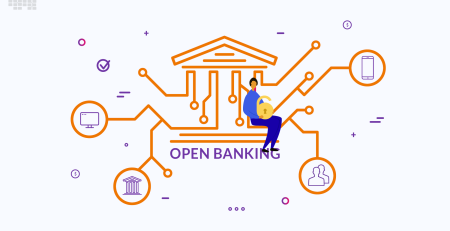AI-Powered Strategies for Empowering Personal Financial Management
Table of Contents
Learning about personal finance is becoming more complex, requiring people to learn how to use budgeting tools, different investment opportunities, as well as understanding debt categories and management strategies. Along with that, recent rapid advances have transformed our personal financial management landscape through the use of artificial intelligence.
Powerful technologies such as AI, natural language processing, machine learning, predictive analytics, and data science are being utilized to offer tailored, automated, and effective financial tools. In this article, we will explore the intersection of AI and personal financial management, as well as highlight the benefits and drawbacks of AI in achieving our financial goals.
Understanding Personal Financial Management
Personal financial management includes debt management, retirement planning, knowing which financial instruments to use, and keeping tabs on earnings, outlays, and investments. It requires self-control and a thorough understanding of financial concepts to succeed in it.
Personal financial management has historically involved in-person meetings, paper records, and human counselors and advisors. Before now, people who wanted to learn more about handling their money either went to financial consultants for comprehensive counsel or used books, seminars, and internet articles as self-education tools. However, this approach has been time-consuming and usually inaccessible to everyone.
Fortunately, there has been a significant shift in personal financial management over the years, with the growing advances in the FinTech industry starting with online banking providing the convenience of managing money from the comfort of our homes or while on the go. Financial applications, which offer tools for investing, tracking spending, and budgeting, have also come onto the market. Thanks to these robo-advisors, financial management has become more accessible to the general public because they utilize computers to manage portfolios and offer financial advice at a fraction of the price of traditional human advisors.
While these advancements have made managing personal finances more accessible and convenient, there is always space for improvement. Many people could benefit from more individualized guidance as many still struggle with making financial decisions. Furthermore, the guidance offered by robo-advisors is typically quite general and might not consider each person’s particular situation and goals.
Herein lies the application of artificial intelligence. It can bring together the personal guidance often given by human advisors with the affordability and ease of use of digital solutions.
Artificial Intelligence and Personal Finance
We’re already seeing glimpses of AI’s capacity to transform personal finance. Artificial intelligence (AI) is slowly seeping into more areas of financial services, from robo-advisors that automate investment management to customer care chatbots that answer common banking queries.
One of its main benefits is its capacity to swiftly and reliably evaluate enormous volumes of data. It means that in terms of personal finance, AI can examine a user’s earnings, outlays, savings, investments, and financial objectives to offer individualized guidance based on their unique situation. When it comes to saving for a significant purchase, retirement planning, or selecting the ideal investment product, this can assist users in making more informative financial decisions.
AI chatbots, specifically, have the power to make financial advice more accessible. It is no secret that personalized financial advice can be a luxury that’s only accessible to wealthy individuals. Professional financial counselors demand fees that many people find prohibitive, particularly those just beginning to establish their financial lives. AI chatbots, on the other hand, can offer financial advice for a significantly lower price, making it available to a larger audience.
Chatbots can also provide more proactive financial advice. Chatbots may analyze financial data in real time and notify users of any problems or possibilities without waiting for users to ask for help. A chatbot might, for instance, alert a user when they are overspending on eating out or advise them to invest their tax refund rather than spend it.
Benefits of AI in Personal Finance
Automation and Efficiency
AI can help automate a lot of time-consuming tasks. Artificial Intelligence (AI) may automate tasks like budgeting, tracking costs, and monitoring investment performance, freeing up users’ time to concentrate on other financial concerns.
Personalized Recommendations
Users can use AI-driven algorithms to assess their goals, risk tolerance, and financial status, among other things. They receive personalized financial recommendations and counsel as a result. Those who lack financial literacy or do not have access to typical financial advisors will find it very helpful.
Enhanced Security
Users can use artificial intelligence to identify and stop fraudulent activity. It might also offer additional security and safeguard against monetary loss.
Limitations of AI in Personal Finance
Privacy Concerns
AI-powered financial solutions frequently require access to a person’s private financial data. Because of this, many people are worried about disclosing their data security and privacy violations.
Limited Human Touch
While AI can provide a person with insightful analysis and helpful suggestions, it is not emotionally intelligent. Its decisions are not the same as those of a human financial counselor. Hence, AI may result in poor financial judgment and lost chances.
Over-reliance on Technology
AI can limit a person’s capacity for critical thought and his capacity for making nuanced decisions. People should avoid becoming unduly reliant on AI and instead utilize it to augment their financial literacy.
Conclusion
Beyond merely being a technological trend, AI’s integration into personal finance is a revolutionary path that will likely completely change how we handle our finances. AI has extensive intriguing applications, from providing personalized advice to forecasting market patterns and improving financial literacy. Overall, the potential of AI in personal financial management is something to look out for.












Leave a Reply